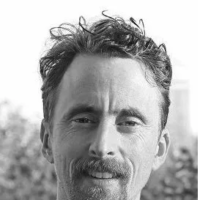
Post-Doctoral Researcher – EuroFIT
Would you like to work with a world-leading research group on a project directly contributing to the development of Europe’s future climate and energy policy? Applications are invited for the post of Post-Doctoral Researcher in Energy Systems Modelling to join the MaREI Centre for Energy, Climate and Marine in University College Cork. The researcher will develop and deliver a European power system model “EuroFIT” which will inform the discussion on how Ireland and Europe can develop its grid infrastructure to integrate renewables in the most efficient and effective manner possible. This project is supported by SuperNode, a global technology development company that designs superconducting connection systems to connect renewable generation and increase grid interconnection in mature markets.
Role
The Post-Doctoral Researcher will play an integral role in the EuroFIT project by helping to design, update and maintain an EU wide power system model built in the PLEXOS software. A continental European grid is a vision for a fully integrated European electricity system unlocking the best renewable resources and connecting them to all of Europe. This would span far enough to alleviate the variability of local weather and connect the strongest resources to demand centres ensuring that every European has access to clean renewable power, regardless of local weather conditions. Ireland can be seen to have one of the highest offshore wind speeds in Europe, with its offshore wind industry now starting to gain momentum. The development of adequate infrastructure and technology for offshore grid and interconnection will become critical for Ireland to unlock its full renewable potential. The post-doctoral researcher will develop a granular grid model which will inform, and guide decisions related to vital transmission corridors for Ireland, and Europe. The researcher will investigate and test innovative grid solutions within the model and highlight use cases for their implementation in the grid. Of particular interest is exploring the technical and system advantages of utilising superconductors for large scale transmission. Superconducting cables have a size advantage, lower total electrical losses for high-capacity transmission, minimized environmental impact and increased public acceptance leading to an overall more sustainable transmission of electric energy. The Post-Doctoral Researcher will develop the model using existing publicly available data and will use the model to analyse and investigate various future grid configurations across Europe that are aligned with current climate and energy goals. This work will inform policy makers on the opportunity posed to Ireland in growing an energy export market from both a system perspective but also a technology perspective.
The ideal candidate should be a quantitative, analytical person with a PhD in engineering, science, or economics, and a proficiency and appetite for energy systems analysis and policy-relevant, multi-disciplinary research. Direct experience with energy models is required, and candidates experienced in energy systems simulation modelling frameworks such as PLEXOS or similar are particularly preferred. The applicant must display a broad understanding of the power system and its interactions with wider society. Candidates must have knowledge of energy and climate policy. The candidate should be a skilled communicator with experience in policy analysis. Experience with visualization of energy modelling insights to varied audiences would be an advantage. Experience of writing for and engaging with different stakeholders is expected. Supervisory skills, leadership potential, stakeholder engagement experience and having raised and managed research funds will also be an advantage. The ideal candidate would have a track record of strong peer reviewed journal publications appropriate to their experience. Fluent written and spoken English is an essential requirement.
Location
The successful applicant will be based in UCC’s Environmental Research Institute (ERI) (https://www.ucc.ie/en/eri/), which is an internationally-recognised institute for environmental research dedicated to the understanding and protection of our natural environment and to developing innovative technologies, tools and services to facilitate a transformation to a zero-carbon and resource-efficient society. Overlooking a protected natural reserve and the River Lee, the ERI is a welcoming, diverse and modern workplace.
MaREI
The MaREI Centre of Energy, Climate and Marine (www.marei.ie) is the Science Foundation Ireland (SFI) centre of excellence in Energy, Climate and Marine research in Ireland. The MaREI Centre includes 13 Universities, Third Level Institutes and Research Organisations, has 103 industrial partners and has research funding of approximately €60m. It combines the expertise of a wide range of research groups and industry partners, with the shared mission of solving the main scientific, technical and socio-economic challenges across the energy, climate and marine domains. Researchers in the MaREI Centre have over 30 years of experience in conducting fundamental and applied research supported by competitively won national and international funding, and commercial contracts with government agencies and industry. MaREI’s strengths lie in the multi-disciplinary nature of its research teams, allowing it to combine insights across areas such as Marine Renewable Energy Technologies, Materials & Structures, Observations & Operations, Coastal & Marine Systems, Bioenergy, Circular Economy, Energy Policy & Modelling, and Renewable Energy Management.



